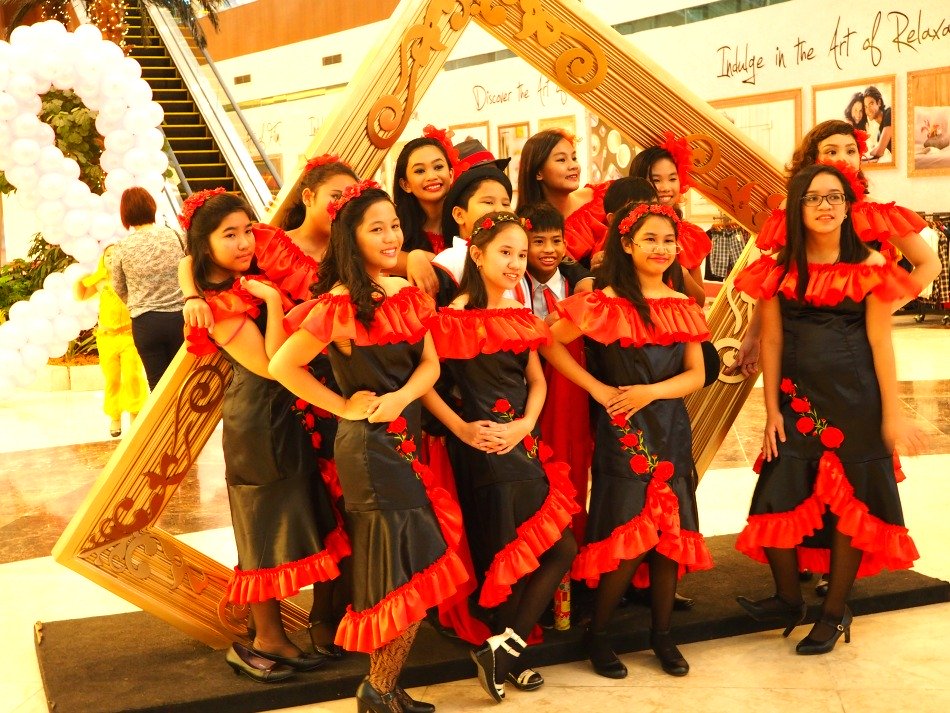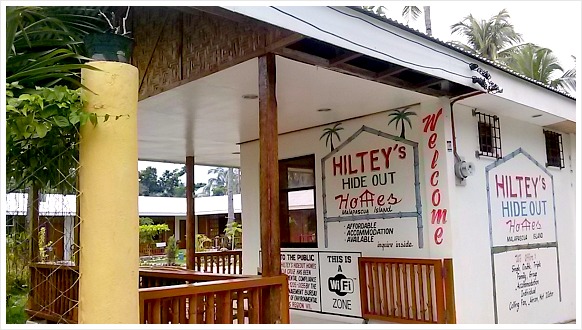"Experience Cebu Culture...
at Its Best!"
 Cultural dance performance at Robinson's Cebu
Cultural dance performance at Robinson's CebuIntroduction
Cebu Culture is very diverse being at the center of the country.
Welcome to the Cebu Culture page! Situated in the Philippines, Cebu is a vibrant city that features a unique blend of cultures and traditions.
Here, you will find a rich history, exciting attractions and fascinating cultural practices.
You'll have the opportunity to explore both modern and ancient aspects of this vibrant culture as you discover its roots, customs, art and music.
From its famous festivals to its traditional cuisine, Cebu will give you an unforgettable experience.
Let's take a closer look at the culture of Cebu and what makes it so special.
Interesting Cebu Culture
Luzviminda
Breaking down the Philippines into three major islands (Luzon, Visayas, Mindanao) signifies diverse culture.
Among the 7,107 islands, Cebu is one of those that represents diversity of culture.
I'm glad to have been born and raised in Cebu—a place where different cultural heritages are embraced. The colorful culture of the Philippines is something that I will always be proud of.
Coming from a multicultural society, I am proficient in three languages: Filipino, English, and Cebuano. With this being said, I am also well-versed in the different customs and traditions of my country. As a result, I find it easy to interact with people from different cultural backgrounds.
In Cebu alone, you can find an abundance of festivals that celebrate unique cultures. For instance, the Sinulog Festival celebrates the Santo Niño, while the Dinagyang Festival honors Ati-Atihan.
These festivals are great opportunities to learn more about the Filipino culture and experience it firsthand.
Although Cebu is composed of one big island and surrounded with 167 islets, Cebuano or Binisaya is the common and widely spoken language, a language of Malay origin.
The language is related to both Tagalog and Hiligaynon. It has a strong influence from the Spanish language due to 300 years of colonization by Spain, making it a diverse dialect.
Most locals speak Binisaya or Cebuano as their native language while English is widely spoken in most areas.
Visiting Cebu will be an enjoyable experience as the culture is rich and vibrant. The people are friendly and open-minded, making Cebu a great place to explore and learn about the Philippines.
Cebu's geography also makes it an ideal destination for travelers looking for adventure. With its wide range of natural resources, from mountains to beaches, there are endless possibilities for activities.
The many islands scattered around the coastline offer pristine coral reefs and awe-inspiring marine life, perfect for scuba diving and snorkeling.
Cebu also has a wide array of historical sites to discover, such as Magellan's Cross, Fort San Pedro and the Basilica del Santo Niño de Cebú.
If you're looking for something a little more lively, Cebu has plenty of nightlife to explore. The city's bars and clubs offer a vibrant atmosphere with live music and great food.
For those who enjoy shopping, the markets in downtown Cebu have an abundance of souvenirs and local crafts to take home.
Whether you're looking for an active adventure or a relaxing getaway, Cebu has something to offer everyone.
With its stunning landscapes and diverse attractions, it is the perfect destination for travelers of all ages.
And if you’re still in need of more activities during your stay, be sure to take advantage of local guided.
Roots & Language
From these three major regional islands come a wealth of diverse
culture with Spanish, Malay, Chinese, and other influences from
neighboring countries.
Although the people of Cebu call themselves 'Cebuano' they also consider themselves as 'Pinoy' a common or shortened version from 'Pilipino'.
Cebuano, as widely spoken language in the Visayas region among the extant 80 languages, is also commonly used in Mindanao Island, which was spread due to the migration of Cebuano/Bisayan speakers.
Pinoys who are born and raised in Cebu can speak Tagalog (and English generally) since it is a required subject in the school curriculum.
However, Tagalog speakers normally cannot speak Cebuano since they never learn it formally, unless they have other means of obtaining the language, such as having origins or migrating to the province.
Cebu Culture: Art & Grace
Art forms are diverse among Cebuanos. Before the coming of the conquestadores, Cebuanos used to paint themselves employing the nowadays popular tattoo art forms.
Although this form of art somehow vanished from the island, painting and other art forms are flourishing in myriads of medium. Many famous Cebuanos became clothing designers, furniture design artists, painters, sculpture, among others.
Another form of art common in Cebu is dancing. Dances could be interpretations of deity worship, religious devotion (as in Sinulog), or just ordinary dances done during various festivities in Cebu island.
The video clip shows some of such cultural performances...
 Sinulog Festivity
Sinulog FestivityMore Cebu Culture, Customs, Traditions...
You might like other Cebu cultural and traditional beliefs...
Sinulog Festival
Sinulog is one of the most famous cultural events on the island. it is celebrated annually by performing religious dances with music and drums. It is usually performed by various participants in groups.
The participants are usually dressed in colorful costumes and they wear makeups, painted their faces (some black), or wear mask while dancing on the streets.
More on Sinulog festival here...
Customs and Traditions
Another way to look at the indigenous with religious aspects in Cebuano culture is by observing how they respect the dead and the way the funeral ceremony is being celebrated or solemnized.
Aside from Christian influences, native and indigenous beliefs are obvious in the way Cebuanos pray, wake, or bury their dead loved ones.
More on Cebu customs & traditions here...
Gaba & Buyag (law of nature, 'karma', curse...)
Gaba and buyag are clear evidences of native and indigenous beliefs among Cebuanos (also pervasive among Filipinos in various regions).
Gaba can be easily likened to 'karma' but a close look at them one can tell they are both different. One of them can be both positive and negative while the other is purely negative.
More stories of gaba, buyag (and karma) here...
Enjoy browsing...
- Home
- Cebu Customs
- Cebu Culture
Book Your Activity Here...
Please Like, Share...
Leave Messages...
|
|
Book & confirm your hotel room quickly and safely with Agoda Company. Agoda uses a state-of-the-art technology when processing your transaction online. Traveling Cebu is Agoda's official partner for eight years now. Find now your hotel here or below.







